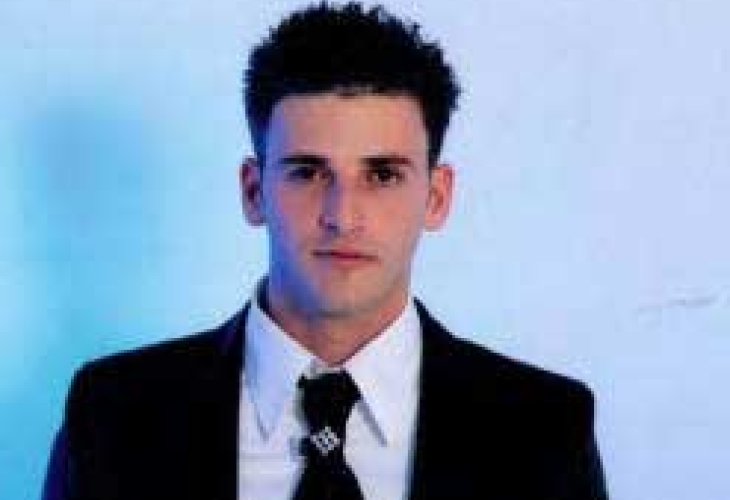Personality Development
From Dreams to Destiny: The Journey of Rabbi Shai Amar
How resilience, gratitude, and faith shaped a life of purpose, leadership, and lasting love.
- Shira Dabush (Cohen)
- |Updated

Regardless of the kind of family we were born into or the background we were raised in, what unites us all is that we all have dreams. From a young age, we learn to strive for something, to set goals and pursue them, to feel a sense of satisfaction from achieving them, and then move on to the next.
Some kids who are fighters, learn early on that success comes with many failures along the way. But other children grow up with the mistaken belief that their dreams cannot be actualized but and must remain dreams. Rabbi Shai Amar, a senior lecturer at Hidabroot, husband, and father of four, wants to challenge that misconception.
“In my work as a lecturer and marriage counselor, I’m often asked: ‘How did a young guy like you get to a place of meaningful influence?’ My answer is always the same: Nothing came easily- quite the opposite. Ever since I entered yeshiva as a teen, I remember staying up studying until three in the morning for exams, pushing myself tirelessly. The same continued into advanced yeshiva. But the reward and sense of fulfillment that followed were immense.”
When asked where he developed his rhetorical skills, Rabbi Amar credits his father. “As a young child, my father would push me to speak in front of the congregation at synagogue. Back then, I found it annoying, but today, I’m deeply grateful. That encouragement built my confidence to speak in front of others and helped me learn how to connect with a range of audiences, adapt to their needs, and overcome the fear of public speaking.”
That is one of many things he learned from his father. “Anyone who thinks raising children to fear Heaven and love Torah happens by chance is mistaken,” Rabbi Amar says. “I was raised in a home that treated matters of Torah and respect for scholars with deep reverence. My father was very close to Rabbi Ben Tzion Abba Shaul zt”l, and even today maintains strong ties with other Torah leaders. As children, we learned to respect all people, but especially Torah scholars.
“In our home, speaking negatively about Torah scholars was unheard of, regardless of who they were or what their reputation was. The moment you begin to doubt your rabbis, your faith in G-d itself begins to crumble. We were raised to look kindly upon everyone.”

The Secret to a Happy Marriage: Love What You Have
At 24, after six years of learning in advanced yeshiva, Rabbi Amar got married. Shortly after, he trained as a mohel and joined Rabbi Dan Segal’s kollel in Jerusalem. He later moved with his family to Modiin Illit.
Though he intended to continue his Torah studies full-time, Divine providence led him in a different direction, toward public outreach. “One day, Rabbi Moshe Ben Lulu, director of Radio 2000, told me he had heard me speak and liked what he heard. He invited me to volunteer for a Torah program. That turned into a daily one-hour class I gave for over three and a half years.”
“With that experience under my belt, I approached Hidabroot to explore working with them. I came in for an interview, and the rest is history. My first lecture series on the laws of blessings received incredibly positive feedback.” Two years later, Rabbi Amar began teaching on a variety of life topics and also writing a weekly halachic column in Hidabroot’s Shabbat bulletin. “Many women, especially homemakers, have written to say how that the column is like a lifeline for them.”
Today, in addition to all his roles, and with guidance from his rabbinic mentors, Rabbi Amar also works as a marriage counselor and meets with individuals and couples weekly.
What is the Biggest Challenge in Marriage Counseling?
“As human beings, I think the hardest part of being a marriage counselor is separating your personal emotions from the neutrality the role demands. When you hear both sides of a conflict, it’s natural to feel more empathy for one party. However, moral integrity requires staying objective and responding logically and fairly, even when one side seems more right than the other. To advise someone, you need think clearly and pray to be a good messenger for them.”
One Marriage Tip?
“There’s one thing I always tell both myself and the couples I work with, which is based on the teachings of our sages: ‘Focus on what you have, not on what you lack. What you don’t have- you don’t have. What you do have- you might not have a minute from now.’ That’s my life motto. If a person can learn to appreciate what they do have- not only in marriage, but in life in general- they can handle any hardship and accept it with love.
“The secret lies in accepting your spouse as they are, without building unrealistic expectations. To rejoice in what you have isn’t easy. But when you realize that others don’t even have that much- like the humble straw bed of Akiva and Rachel- it becomes a deep source of comfort. So deep, in fact, that it can become the seed of true happiness.”

